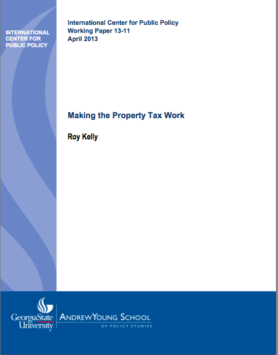Lincoln Institute of Land Policy Working Paper 13-11
Students of public finance and fiscal decentralization in developing and transitional countries have long argued for more intensive use of the property tax. It would seem the ideal choice for financing local government services. Based on a Lincoln Institute conference held in October 2006, the chapters in this book take this argument one step further in drawing on recent experience with property tax policy and administration.
Two main sets of issues are addressed. First, why hasn’t the property tax worked well in most developing and transitional countries? Second, what can be done to make the property tax a more relevant source for local governments in those countries? The numerous advantages of the property tax as a local government revenue source are analysed and discussed in detail, as are the many perceived disadvantages.
Compiled by editors Roy Bahl, Jorge Martinez-Vazquez, and Joan Youngman, this volume examines whether the property tax can be made to work under a variety of circumstances. The underlying theme that runs through most of the chapters is that the property tax is in a perpetual transition, and its policies and administration are always changing. Yet most analyses are optimistic that the transitions are moving in the right direction.
